It’s perhaps the most fitting symbol a February born-baby could ever have.
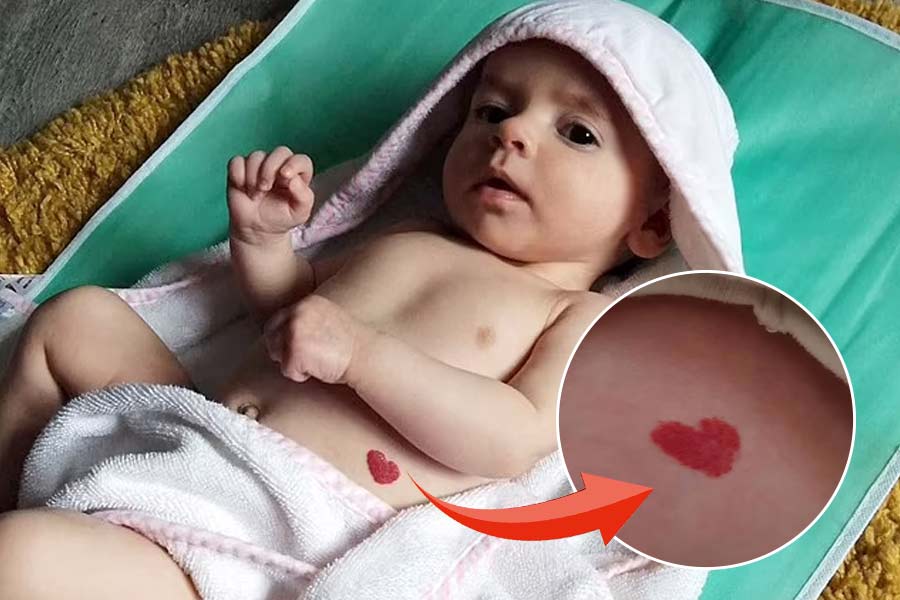
So it’s no surprise that midwives couldn’t believe their eyes when Jorgia Welch was delivered with a heart-shaped birth mark. It sat on the left side of her tummy, in line with her belly button.
Medics told 37-year-old mother Jayne and her partner Joe, from Stoke-on-Trent, that the heart would likely disappear with age. But Jorgia’s symmetrical birth mark has only grown in proportion to her and remains clearly visible ahead of her first birthday next week.
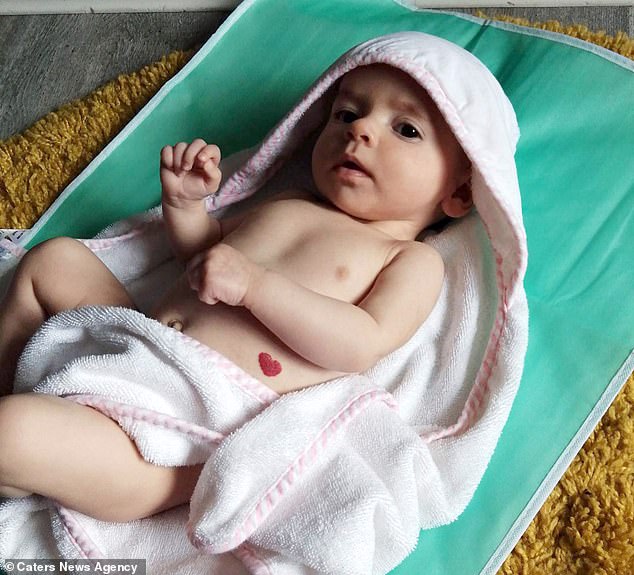
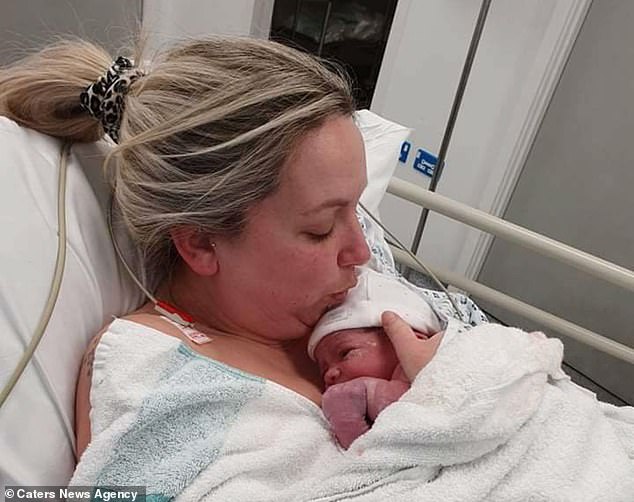
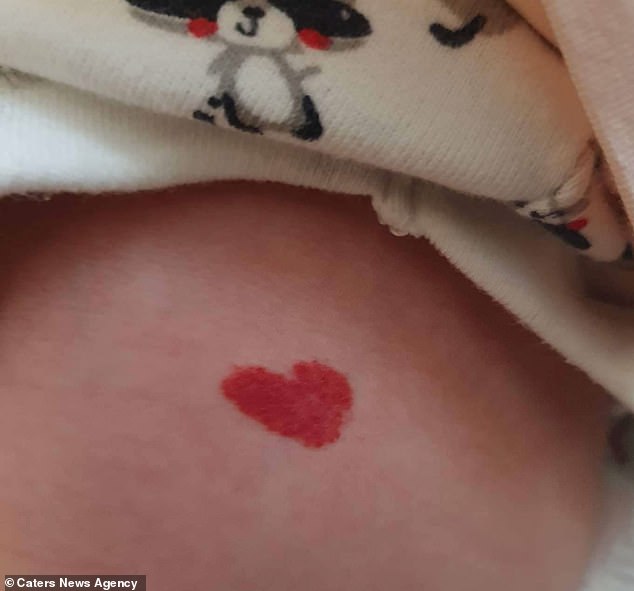
Jorgia was born on February 22 last year, arriving three days early via a planned C-section.
Ms Welch, a care assistant, said: ‘The heart-shaped birth mark is on Jorgia’s tummy and midwives couldn’t believe it when they spotted it. We knew we were having a girl and the paediatrician was amazed when they noticed the red marking on Jorgia’s tiny tummy. When she was first born, it was only a little red mark, but in a perfect heart shape.’
Since then, the mark has kept growing and is now slightly raised, she said.
Ms Welch added: ‘Doctors thought it would fade, but it hasn’t disappeared or faded. Jorgia is growing up quickly, it’s grown with her and in perfect proportion. She is very cheeky and so funny and Joe is smitten with her. She is a real daddy’s girl.’
Jorgia’s birth mark has been the talk of her midwives and health visitors since she was born, her mother said.
Ms Welch added: ‘Everyone who meets her loves it and always wants to see it. She is known as “the little girl with the perfect love heart” and we are grateful there are no medical concerns about it. It’s just a beautiful and unique part of her.’
Now, almost one, Jorgia has started to notice her unique strawberry birthmark and is quite fascinated by it.
Ms Welch said: ‘She pokes it in the bath, and since she has developed a pincher grip, she has tried to take it off. We have explained to her, it’s stuck to her. It’s a very special, unique part of her.’
Ms Welch is now planning to get a love heart tattoo on her left side, copying her daughter’s unique birthmark.
She said: ‘I would like to get a matching tattoo in the same place. I really hope if it does stay as she gets older that she will love it as much as we do and that she won’t be self-conscious about it. We love our February-born baby girl and her very unique love heart birthmark.’
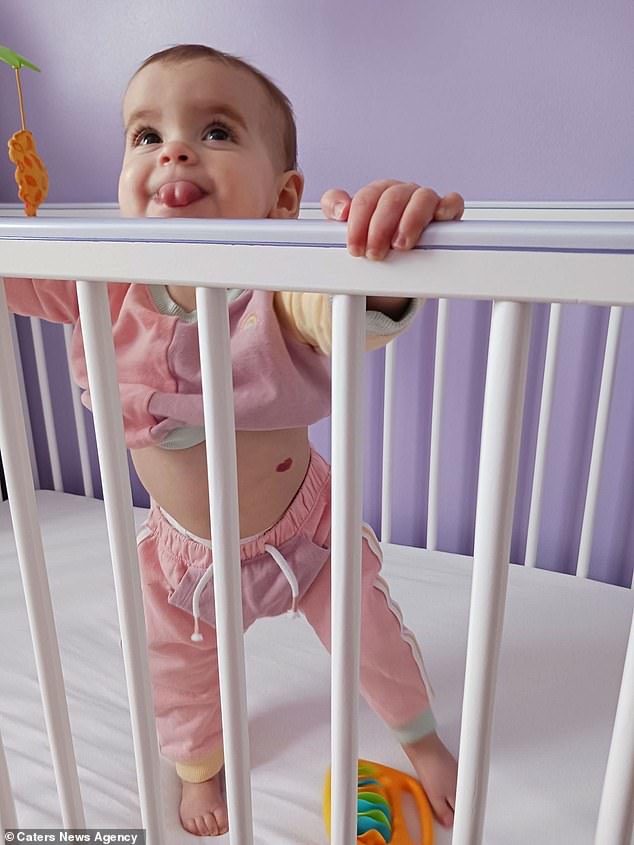
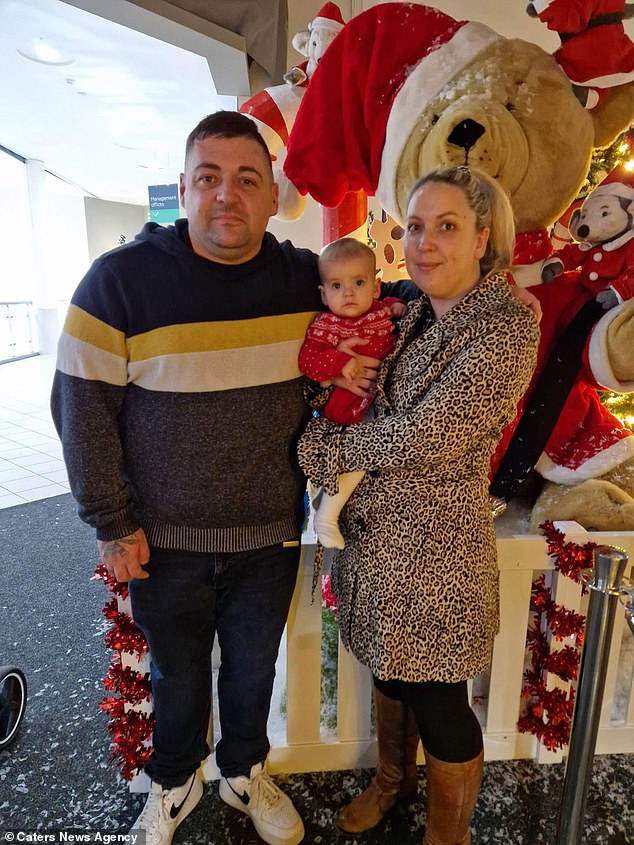
Birth marks are coloured marks on the skin that are present at birth or soon afterwards. They are very common and most types do not require any treatment at all.
But some may need to be treated if they are interfering with health. For example, a type of mark called haemangiomas causes a lump to form under the skin.
It may need to be removed using a laser if it is near an area that could cause problems as a child grows, such as their eyes, nose or mouth.
What is a birthmark?
Birthmarks are coloured marks on the skin that are present at birth or soon afterwards. They are very common and most types do not require any treatment at all.
But some may need to be treated if they are interfering with health. For example, a type of mark called haemangiomas causes a lump to form under the skin.
It may need to be removed using a laser if it is near an area that could cause problems as a child grows, such as their eyes, nose or mouth. Treatment includes laser therapy – where heat and light are used to make the birthmark smaller and lighter.
Medicines can also be used to reduce blood flow to the birthmark, which can slow down its growth and make it lighter in colour. And surgery may be recommended, although this can leave scarring.
Source: NHS
Share or comment on this article: Real-life cupid! February-born baby has a perfect heart-shaped birth mark on her tummy.
